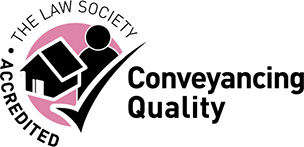The Rules and Regulations surrounding Legal Aid
What is Legal Aid?
Legal aid is the provision of assistance to individuals that are otherwise unable to afford legal representation. It is there in order to help cover the costs of legal advice, family mediation, and representation in a court or tribunal. It also funds the gathering of evidence and any court fees. It will also pay the other party’s costs if you lose.
To qualify for legal aid you will usually have to show that your case is eligible for legal aid, the issue is serious enough to warrant legal aid and you have no means to pay the legal costs. For your case to be severe enough it will usually have to be heard in the crown court. This is known as an ‘indictable only’ offence.
Some of the most likely situations in which legal aid may be offered are:
- If you or your family are at risk of abuse or serious harm, such as domestic abuse or forced marriage
- You are at risk of losing your home or homelessness
- You’ve been accused of a crime, face prison or detention
- You need family mediation
- You’re bringing a case under the Human Rights Act
- A child in your family is at risk of being taken into care
Whether you qualify for legal aid will depend on the type of case and your financial circumstances.
Civil Cases
Situations such as debt, family mediation and housing problems all fall under the category of civil cases. To be able to receive legal aid, you will have to prove that you cannot afford the costs involved in your case and that the problem is serious. As legal aid is means-tested, you’ll have to show evidence and give details of your income.
In the case of domestic abuse or a situation where you or your children are at risk of harm from your partner, you will be required to support the claim with evidence. This evidence can be requested from:
- The courts
- The police
- Social services
- A health professional
- A refuge manager
- Domestic violence support service
Criminal cases
You have the right to free legal advice if you’re questioned at a police station. You’ll also receive legal aid if you’re under 16 or under 18 and in full-time education or on certain benefits.
How Much Legal Aid Can I Get?
How much legal aid you’re entitled to will be based on numerous factors. The main consideration for Legal Aid is whether or not you can pay your legal fees. If you can’t and you have a low income then you may be eligible.
As a general rule, the Legal Aid Agency set a general benchmark of having a disposable income of less than £733 a month. Disposable income is what an individual has left after paying taxes. This does not include what one has left after bills and rent/mortgage is paid. This is known as discretionary income.
When applying for Legal Aid, both the claimant and their partner’s income is assessed unless the relationship has completely broken down. Anyone with more than £8000 in capital is automatically ineligible for legal aid. Capital can include any money in the bank, financial interests, and the claimant’s home. As of 28th January 2021, applications only look at the equity of your home, that is the amount of it you own, which is the total market price, minus your outstanding mortgage.
Your financial situation is not taken into account when dealing with mental health tribunals, children in care and child abduction.
If you are successful, you may still need to contribute to the costs involved in your dispute. The legal aid you receive could come in the form of advice on your rights and options, help with negotiations and any paperwork needed, or use a solicitor to prepare your case and speak on your behalf in court and at certain tribunals.
How do I apply for Legal Aid?
The starting point is to find a local solicitor that has been awarded a legal aid contract, as they can assist you with eligibility criteria and gather the required evidence. They will be able to assess your circumstances to see whether or not you will be eligible.
How do I claim Legal Aid?
If you have a legal advisor or family mediator, they will apply on your behalf. These costs will be paid by the government directly to them if you are eligible.
In the case of criminal charges, a police custody officer will help you get legal aid if you have been arrested and are being held at a police station. There you will be offered free advice over the telephone if the offence is less serious or from the police station’s duty solicitor or your own legal advisor.
You will need to bring the following information for both yourself and your partner to give to your legal advisor
- Benefits statements
- Income, savings and spending. These will include payslips and bank statements.
You will also require any evidence that is relevant to your case
- Marriage and birth certificates
- GP referrals and examination notes
- Relevant letters
You can also receive legal aid in exceptional circumstances. To be eligible you would have to show that being refused legal aid would infringe upon your Human Rights or your EU rights to representation.
Paying your legal aid back
In some cases, an individual who has been in receipt of legal aid may have to pay back some or all of the costs. These repayment options are operated under the Legal Aid, Sentencing and Punishment of Offenders Act 2012. In civil cases, if the individual keeps or retains any money or property, then they may be required to repay some or all of the costs. The Legal Aid Agency will make a ‘Statutory Charge’ on the individual’s money or property. This may, however, be waived, if enforcement would cause ‘grave hardship or distress’ to a legally-aided party or would be ‘unreasonably difficult because of the nature of the property.’
If you have any questions about legal aid, and whether or not you may be entitled to it, please head over to https://www.gov.uk/legal-aid for more information.


